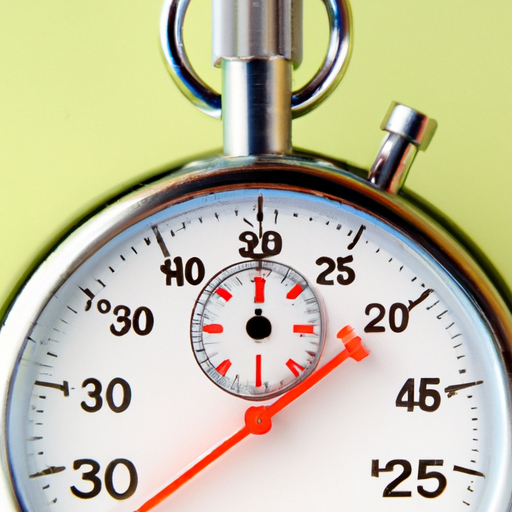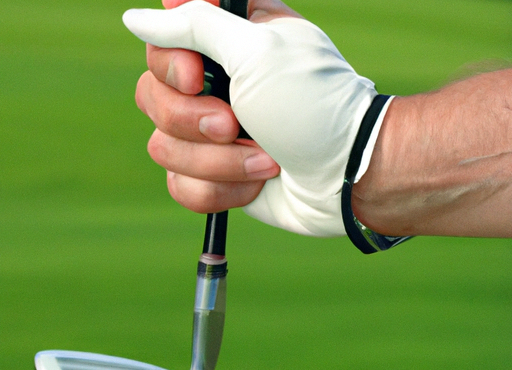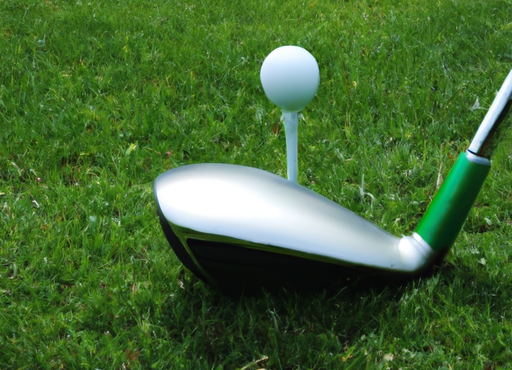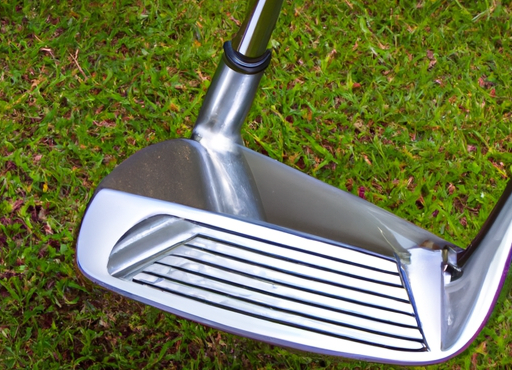
How Can I Practice Effectively With Limited Time?
Do you ever find yourself struggling to find time to practice? With our busy schedules and countless responsibilities, it can be challenging to allocate enough time for consistent practice sessions. But fear not! In this article, we will explore some practical tips and strategies to help you practice effectively, even with limited time. From prioritizing your practice tasks to optimizing your practice environment, we’ve got you covered. So, whether you’re a musician, athlete, or student, get ready to make the most out of your limited practice time and achieve your goals.
Creating a Schedule
Creating a schedule is a crucial step in effectively managing your time and ensuring that you can practice efficiently, even with limited time. By organizing your day and allocating specific time slots for practice, you can make the most of the time you have. When creating your schedule, consider your other commitments, such as work or school, and find pockets of time, such as early mornings or evenings, when you can dedicate to practice.
Organizing Your Time
To effectively organize your time, start by blocking out specific time slots for practice in your daily schedule. Treat these practice sessions as important appointments that you cannot miss. Additionally, identify any fixed commitments you have throughout the day and work around them. By prioritizing and scheduling your practice sessions, you can ensure that you devote sufficient time to honing your skills.
Setting Priorities
Setting priorities is essential when you have limited time. Determine which aspects or tasks within your practice are most important and require immediate attention. For example, if you are learning a musical instrument, prioritize practicing scales or challenging passages over other less critical activities. This way, you can allocate your time and energy to the most impactful areas and make progress even in short practice sessions.
Allocating Time for Practice
When you have limited time, every minute counts. Allocate specific time slots for practice based on your availability and goals. Even if you can only practice for 20 or 30 minutes at a time, consistent and focused practice can yield significant results. Be realistic about the time you have available and ensure that you stick to your scheduled practice sessions. Consistency is key in skill development, and even short practice sessions can lead to progress over time.
Setting Clear Goals
Setting clear goals is vital for effective practice, especially when time is limited. By defining specific objectives, breaking down goals, and monitoring progress, you can maximize the efficiency of your practice sessions.
Defining Specific Objectives
When setting goals for your practice, be as specific as possible. Instead of aiming to “improve your skills,” define concrete objectives such as mastering a particular technique or learning a new piece of music. By setting clear and achievable objectives, you can focus your practice efforts and measure your progress accurately.
Breaking Down Goals
Large goals can be intimidating and overwhelming, especially when time is limited. To make your practice sessions more manageable, break down larger goals into smaller, actionable tasks. For example, if your goal is to learn a complex dance routine, break it down into smaller sections and focus on mastering each section individually. This approach allows you to make progress incrementally and prevents you from feeling overwhelmed.
Monitoring Progress
Regularly monitoring your progress is essential in effective practice. Keep track of your achievements, improvements, and areas that need further work. This self-assessment allows you to identify patterns, adjust your practice routine, and celebrate milestones along the way. As you track your progress, you may also gain a better understanding of how much time you need for different tasks, enabling you to optimize your practice schedule.
Utilizing Time Management Techniques
Time management techniques can greatly enhance your practice efficiency, even with limited time. By employing strategies such as the Pomodoro Technique, focusing on top three priorities, and batching similar tasks, you can make the most of your practice sessions.
Pomodoro Technique
The Pomodoro Technique is a time management method that involves breaking work or practice sessions into focused intervals, usually 25 minutes long, followed by short breaks. By working in concentrated bursts and taking regular breaks, you can maintain focus and avoid burnout. This technique is particularly helpful for maximizing productivity when practice time is limited.
Top Three Priorities
Identify your top three priorities for each practice session. By focusing on these key tasks, you can ensure that you are devoting your time and energy to the most important aspects of your practice. This approach helps you avoid spreading yourself too thin and allows you to make meaningful progress even with limited time.
Batching Similar Tasks
Batching similar tasks involves grouping similar practice activities together. For example, if you are learning a new language, you could dedicate one practice session to vocabulary-building exercises and another session to listening comprehension. Batching similar tasks can help you enter a state of flow and minimize cognitive switching. By focusing on a specific skill or area during each practice session, you can optimize your learning and maximize efficiency.
Minimizing Distractions
To practice effectively with limited time, minimizing distractions is crucial. By creating a distraction-free environment, putting away electronic devices, and managing interruptions, you can maintain focus and make the most of your practice sessions.
Creating a Distraction-Free Environment
Find a quiet and clutter-free environment for your practice sessions. Remove any potential distractions, such as unnecessary objects or loud noises. By creating a dedicated space for practice, you can minimize external disruptions and better concentrate on your tasks. Even if you don’t have a separate room, creating a designated area or using noise-canceling headphones can help create a focused environment.
Putting Away Electronic Devices
Electronic devices can be major distractions during practice sessions. To maximize your focus, put away your phone, tablet, or any other devices that might tempt you to check messages or browse social media. Consider using apps or features that limit phone usage during specific periods or practice silently without any background noise from electronic devices.
Managing Interruptions
Even in a distraction-free environment, it is essential to proactively manage interruptions. Let your family members, roommates, or colleagues know about your designated practice time and request their support in minimizing interruptions. Consider using a “do not disturb” sign or setting boundaries to maintain uninterrupted practice sessions. By effectively managing interruptions, you can make the most of your limited practice time.
Practicing Mindfulness
Practicing mindfulness during your practice sessions can greatly enhance your focus and learning. By being present in the moment, fostering concentration, and eliminating mental clutter, you can tap into your full potential.
Being Present in the Moment
When you practice, actively engage in the task at hand and focus on the present moment. Avoid thinking about past failures or future successes, and instead, immerse yourself in the practice process. Cultivate a non-judgmental attitude and embrace curiosity, allowing yourself to fully experience each practice session. By being present in the moment, you can enhance your attention and absorb new knowledge more effectively.
Fostering Concentration
Concentration is key to effective learning and skill development. To foster concentration during practice, eliminate unnecessary distractions and practice in a quiet environment. If you find your mind wandering, gently guide your attention back to the task at hand. Regular meditation or deep breathing exercises can also enhance your ability to concentrate during practice sessions.
Eliminating Mental Clutter
Mental clutter, such as distracting thoughts or excessive self-criticism, can hinder your progress and diminish your focus. Practice techniques such as journaling or meditation to declutter your mind before each practice session. By addressing any worries, anxieties, or thoughts that may arise, you can create a clear and focused mental space for effective practice. Celebrate small wins and practice self-compassion to maintain a positive mindset that supports growth and progress.
Effective Practice Techniques
To practice effectively with limited time, it’s important to employ techniques that enhance learning and skill development. Deliberate practice, chunking, and visualization are three effective techniques that can maximize the efficiency of your practice sessions.
Deliberate Practice
Deliberate practice involves breaking down complex skills into specific components and focusing on improving each component individually. By targeting specific weaknesses or challenges and engaging in repetitive and focused practice, you can gradually improve your overall performance. Deliberate practice requires both effort and intentionality, making it an effective technique for optimizing practice time.
Chunking
Chunking involves dividing large tasks into smaller, more easily manageable chunks. When learning something new, break it down into smaller sections or patterns. By mastering each chunk individually and gradually combining them, you can make progress more efficiently. Chunking not only simplifies complex tasks but also helps improve memory and retention, making it a valuable technique for effective practice.
Visualization
Visualization is a powerful technique that involves mentally rehearsing and visualizing successful performance. Before practicing, spend a few moments visualizing yourself executing the skill or achieving your desired outcome. Engage all your senses and imagine yourself in a state of flow. Visualization can enhance motivation, confidence, and focus, making it a valuable tool in optimizing practice sessions with limited time.
Creating a Practice Routine
Establishing a consistent practice routine is essential for effective skill development, even with limited time. By identifying an optimal time, incorporating variety, and sticking to a regular schedule, you can create a sustainable practice routine that ensures progress over time.
Establishing a Consistent Schedule
Consistency is key when it comes to practice. Determine the days and times that work best for you, considering your energy levels and other commitments. Whether it’s practicing every morning before work or dedicating specific evenings during the week, establish a regular practice schedule and stick to it. By making practice a non-negotiable part of your routine, you can develop discipline and ensure that practice becomes a daily habit.
Identifying Optimal Time
Identify the time of day when you feel most energized and focused. Some people are morning people, while others are more productive in the evening. Experiment with different practice times and identify the period when you are most alert and motivated. By practicing during your optimal time, you can maximize your efficiency and make the most of your limited practice sessions.
Incorporating Variety
While consistency is important, incorporating variety into your practice routine can prevent monotony and enhance engagement. Introduce different exercises, techniques, or genres into your practice sessions to keep them fresh and exciting. Variety not only makes practice more enjoyable but also allows you to develop a broader range of skills. Consider adding elements of creativity, exploration, or improvisation to your routine to keep your practice sessions dynamic and stimulating.
Maximizing Your Practice Sessions
To make the most of your practice sessions, it’s important to set realistic expectations, focus on quality over quantity, and plan ahead.
Setting Realistic Expectations
When practice time is limited, it’s crucial to set realistic expectations. Recognize that progress may be slower than you would like, and acknowledge the importance of consistent effort. Avoid putting unnecessary pressure on yourself and embrace the journey of skill development. By setting achievable goals and focusing on gradual improvement, you can maintain motivation and avoid feelings of frustration.
Focusing on Quality over Quantity
Rather than obsessing over the amount of time you spend practicing, prioritize the quality of your practice sessions. A focused and attentive 30-minute practice session can be more beneficial than hours of mindless repetition. By maintaining concentration, employing effective techniques, and engaging in deliberate practice, you can maximize the value of each minute spent practicing. Focus on creating a deep connection with the material and refining the nuances of your craft.
Planning Ahead
Planning ahead is an essential step in maximizing your practice sessions. Before each practice session, set specific goals or tasks you wish to accomplish. Break down larger goals into smaller, achievable objectives that can be completed within the allocated practice time. Collect any necessary materials or resources in advance, ensuring that you are fully prepared and can optimize your practice time. By planning ahead, you can enter each practice session with a clear focus and purpose.
Using Technology and Tools
Leveraging technology and tools can greatly enhance your practice efficiency, even with limited time. Digital practice apps, online learning resources, and recording and reviewing tools are valuable assets for effective practice.
Digital Practice Apps
Numerous digital practice apps are available to assist you in your practice sessions. These apps offer a wide range of features and functionalities, such as metronomes, tuners, practice trackers, and exercises tailored to specific instruments or skills. Explore different apps that align with your goals and preferences, and integrate them into your practice routine. Digital practice apps can provide structure, feedback, and motivation, making your practice sessions more effective and engaging.
Online Learning Resources
Online learning platforms and resources provide a wealth of knowledge and tutorials across various disciplines. Whether you are learning a new language, mastering a musical instrument, or honing a physical skill, online resources can supplement your practice sessions and offer additional guidance. Access online courses, video tutorials, or forums that align with your goals and interests. These resources can provide valuable insights, tips, and inspiration, enriching your practice sessions and accelerating your progress.
Recording and Reviewing
Recording and reviewing your practice sessions can be an invaluable tool for self-assessment and improvement. Use a smartphone or digital recorder to capture your performances or practice sessions. Set aside time to review the recordings objectively, identifying areas for improvement and pinpointing strengths. Recording and reviewing not only offers a fresh perspective but also enables you to track your progress over time. It allows you to identify patterns, refine your techniques, and become a more effective and self-aware practitioner.
Managing Energy Levels
Managing your energy levels is crucial to maintaining consistent practice and optimizing your performance. By prioritizing rest and recovery, optimizing peak performance, and balancing mental and physical effort, you can sustain long-term progress.
Prioritizing Rest and Recovery
Rest and recovery are essential components of effective practice. Pushing yourself too hard without allowing for adequate rest can lead to burnout, fatigue, and decreased motivation. Prioritize sufficient sleep, healthy nutrition, and regular breaks during practice sessions. Listen to your body and be mindful of signs of fatigue or overexertion. By prioritizing rest and recovery, you can recharge your energy levels and approach practice sessions with freshness and enthusiasm.
Optimizing Peak Performance
Identify the times of day when you feel most energized and focused, and schedule your practice sessions accordingly. Some individuals are morning people and perform best early in the day, while others are night owls. Align your practice schedule with your natural rhythms to optimize your peak performance. Additionally, engage in activities that promote overall well-being, such as exercise or meditation, which can enhance your mental and physical preparedness for practice.
Balancing Mental and Physical Effort
Effective practice requires a balance between mental and physical effort. While physical practice is necessary for developing muscle memory and technical skills, mental practice plays a vital role in enhancing cognition, problem-solving, and creativity. Strike a balance between hands-on practice and mental rehearsal, visualization, or analysis. By incorporating both mental and physical efforts, you can optimize your practice sessions and develop a well-rounded skill set.
In conclusion, practicing effectively with limited time requires careful planning, organization, and a focused approach. By creating a schedule, setting clear goals, utilizing time management techniques, minimizing distractions, practicing mindfulness, employing effective practice techniques, creating a practice routine, maximizing practice sessions, using technology and tools, and managing energy levels, you can make the most of your practice time and achieve meaningful progress. Remember that consistency, realistic expectations, and a growth mindset are key to ongoing improvement. Embrace the process, stay committed, and enjoy the journey of skill development.



